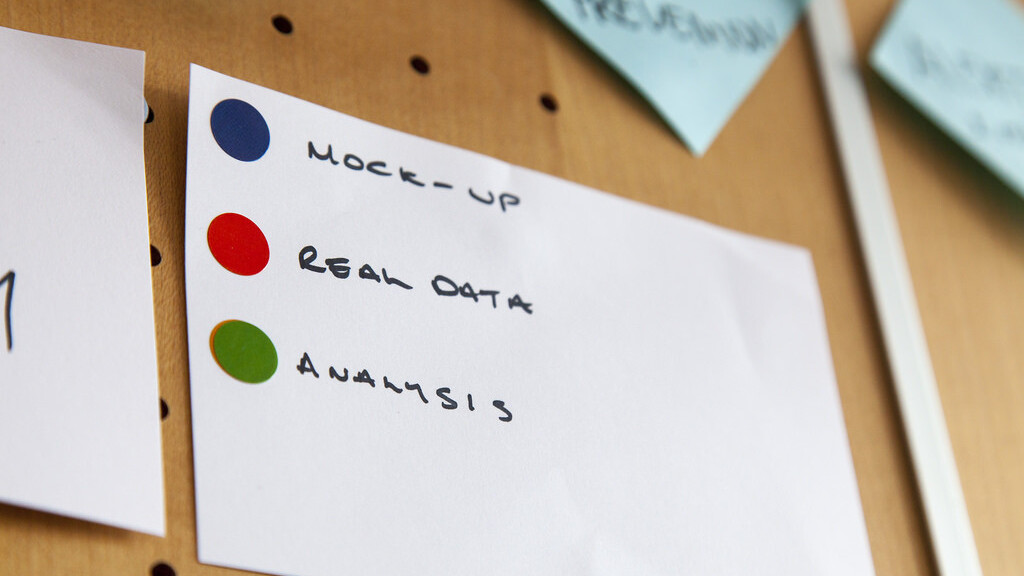Data analysis can be traced back to as early as the days of the Ancient Egyptians started keeping statistical records while building the pyramids. Since then, data analysis have developed by leaps and bounds, and today is considered to be an integral part of our daily lives.
For businesses, data analysis has shifted the professional landscape to become more human-centric, resulting in effective ways to boost revenue while simultaneously improving customer service.
Today, you’d be hard pressed to find a company that didn’t dedicate significant resources to data analysis. Yet, just because data analysis is commonplace, doesn’t mean that there isn’t always room for improvement. There are still companies that often fail due to the following reasons:
1) You have unrealistic expectations
A lot of companies understand that data is important, which it is, but there shouldn’t be a sense of over importance placed on data. A company’s eventual success is based on a variety of factors, and data analysis should be treated as simply one of those vital factors, rather than a magic solution. A common mistake that some businesses make is assuming that data analysis will immediately improve their business model, thus putting cultivating unrealistic expectations.
Some of the main things that you should not expect data to do for you include:
- You should never expect data to solve any issues you are facing, but rather show you what you need to do to improve as a company
- Data analysis won’t identify the ideal target market but can help you identify potential consumers
- Data analysis is still susceptible to error, thus it’s important to carefully manage and monitor your results to ensure there aren’t any major faults
Expecting that data will replace all things human is a common mistake that companies make when first investing in data infrastructure. First, understand what data can do for you and your business and focus on realistic expectations.
2) You are lacking expert knowledge
Since pretty much every company today deals with data analysis in some form or another, those who are new to data analytics may think it’s simpler than it actually is, thus underestimating the power of an expert opinion. Companies that decide against taking on a data expert often miscalculate the dedication it takes in order to manage data, often asking too much of current employees who are potentially out of their depth.
Especially for inexperienced startups and entrepreneurs, working alongside an experienced data analysis professional could help you learn how to harness the power of big data in the following ways:
- Experts analysts will know how to utilize data in your specific industry, helping you create a strategy based on your specific needs
- Data analysts have up to date knowledge about the best data tools and platforms currently available, helping you chose what will work best for you
- Much like industry knowledge, data analysts also possess a wealth of technical skills needed to perform accurate data analysis
It’s important to remember that data analysis is a full-time job and cannot be passed on to just anyone in the office. Companies that invest in expert analysts have a better chance of making improvements using data with the help of an expert, rather than those who simply go into it blindly.
3) You don’t know what you’re looking for
Some companies put the cart before the horse when it comes to implementing data analysis into their business strategy. While data can provide answers to your questions, you should know what your questions are beforehand.
This means having a set goals and expectations in place that will help bring awareness to your strengths and weaknesses, so you know what data sets will help you improve:
- For early stage businesses, establishing goals for where you want to be in the future, whether it’s six months to a year and research how data can help you achieve these goals
- Conduct some basic market research to identify your target market and what their needs are, thus utilizing analysis to meet these needs
- Keep track of recurring setbacks and potential issues and find a way to utilize data analysis to address these problems in a way that they won’t pose a continual problem
Establishing where you need to improve or grow will allow you to use data analysis strategically and effectively, saving your business time and resources.
Whether or not you have yet to start using data analysis to improve your business strategy, or have reached a point where your current methods aren’t working for you, understanding some of the potential mistakes made can help you make the necessary changes to make data work for you.
Get the TNW newsletter
Get the most important tech news in your inbox each week.






